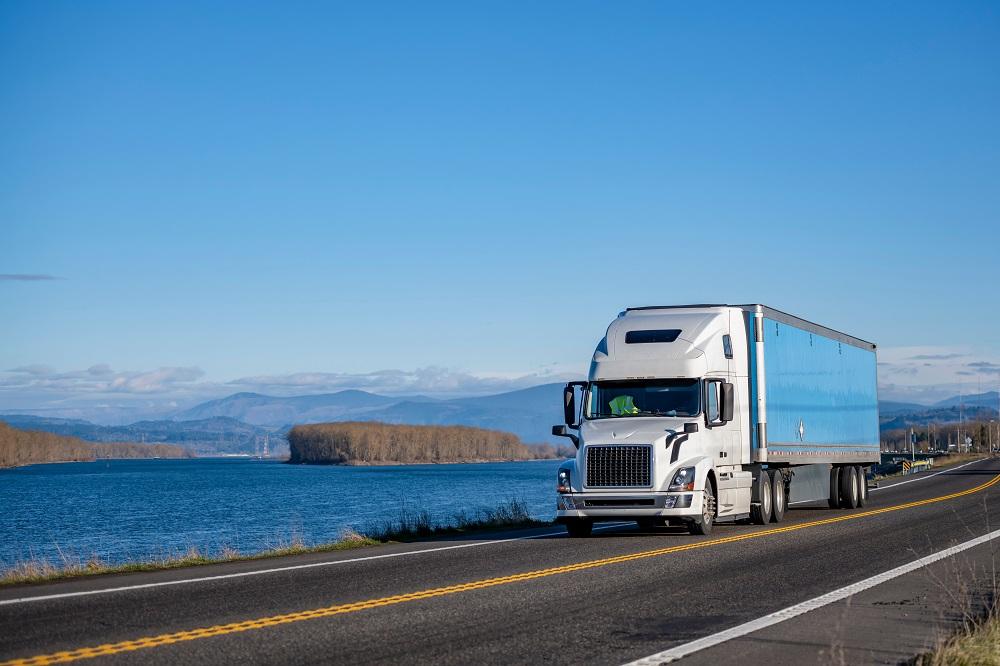Common Industry Hazards for Truck Drivers
March 17th, 2023
By Arrow Truck Marketing

Long-haul truckers are essential workers. They transport all types of goods across long distances, sometimes on the road for days or weeks at a time. Driving a big rig comes with hazards that can compromise the safety of the driver and the load on the road. In this article, we’ll discuss the most common hazards long-haul trucker face and provide tips on how to avoid them.
Fatigue
Long hours of sometimes monotonous driving, irregular sleeping patterns, and a lack of exercise all contribute to driver fatigue. Fatigue is a major, and all-too-common, hazard for long-haul truckers; every driver fights fatigue on every route. But fatigue is nothing to trifle with; it affects reaction time, judgment, and decision-making abilities, all of which are crucial to staying safe on the road.
To avoid fatigue and its deleterious effects, it’s important for truckers to get adequate sleep before and during each trip, take regular breaks, maintain a healthy diet, and establish an exercise routine. It can also be helpful to have a co-driver to share the driving responsibilities and keep each other alert.
Distracted Driving
Distracted driving is another major hazard for long-haul truckers, especially as smartphones and other electronic devices become more prevalent in the cab. Texting, talking on the phone, browsing social media, listening to audiobooks, streaming entertainment, and even eating while driving can all distract truckers from the road and increase the risk of accidents.
To avoid distracted driving, truckers need to be smart and safe when using any electronic device. Hands-free is the only way these devices should ever be used while the truck is in motion, but even that isn’t distraction-free. Good habits also include turning off devices and keeping both hands on the wheel and both eyes on the road while navigating challenging driving conditions such as traffic, bad weather, or difficult roads.
Poor Weather Conditions
Long-haul truckers travel through different states and regions and face a variety of weather patterns on their routes. Poor weather conditions such as heavy rain, snow, ice, or fog make driving more difficult and increase the risk of accidents.
Avoiding bad weather is the best way to stay safe. Truckers should monitor weather reports carefully before and during each trip and plan their route accordingly. Having the proper equipment in good working order is another way to stay safe in rough weather. Drivers need to make sure their trucks are equipped with proper tires, chains, working wiper blades, functional lights, and any other equipment required to handle different weather conditions. If the weather becomes too hazardous to drive in, drivers should always pull over to a safe location until conditions improve. And, when things get particularly rough, roadside assistance should always be an option.
Improper Loading or Unloading
Improper loading or unloading of cargo can also be hazardous for truckers. Overloading or unevenly distributing weight affects the stability of the truck and increases the risk of accidents. Similarly, unsafe unloading practices can also cause accidents. Examples include not having the right safety gear, using poor lifting techniques, or not having sufficient training to unload the cargo safely.
To avoid the dangers of improper loading or unloading, truckers should always follow proper loading procedures and make sure their cargo is securely fastened and evenly distributed. They should also inspect their cargo regularly during transport, make adjustments as needed, and adhere to industry best practices during unloading.
Reckless Drivers
Long-haul truckers share the road with other drivers who may not always follow traffic laws or practice safe driving habits. Reckless drivers, such as those who speed, tailgate, or weave in and out of traffic, put truckers at risk of accidents.
To avoid reckless drivers, truckers need to practice defensive driving techniques such as keeping a safe distance from other vehicles and being aware of their surroundings at all times. They should also be prepared to take evasive action if necessary, such as pulling over to a safe location or braking suddenly. Staying present and focused and setting aside distractions are also critical to staying out of the way of other reckless drivers.
Mechanical Failures
Mechanical failures are a major hazard for long-haul truckers who rely on their vehicles to transport cargo across long distances. Truck malfunctions such as brake failures, tire blowouts, or engine problems can cause accidents and put truckers and their loads in danger.
To avoid mechanical failures, truckers should diligently perform regular maintenance checks on their vehicles and address any issues promptly. They should also make sure their vehicles are equipped with proper safety features.
Road Construction
Road construction is a common hazard for long-haul truckers, as it can cause traffic congestion and force drivers to navigate unfamiliar routes. Detours and lane closures can also increase the likelihood that truckers have to divert to unfamiliar roads. The time delays that result from construction can make drivers on tight deadlines more prone to shortcuts that may be quicker but are also potentially ill-advised.
To avoid road construction, drivers should research their route carefully before heading out onto the road and prepare accordingly. Road construction need never be a surprise.
Stay Safe
Arrow Truck Sales is passionate about providing long-haul truckers with the products and services they need to transport their loads safely wherever they need to go. We offer a stellar selection of outstanding vehicles that have been carefully tested and inspected to ensure performance on the road as well as warranties, roadside assistance programs, and other post-purchase programs that back up our work and demonstrate our commitment to the well-being of truck drivers. Visit Arrow Truck Sales today to learn what we can do for you.

